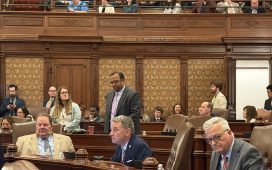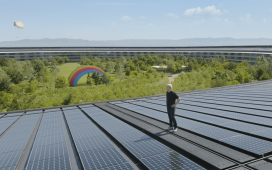Drivers have been warned that planned increases to the Congestion Charge could have a dire impact on thousands of vehicles across London.
The UK boss of Swedish electric vehicle manufacturer Polestar stated that the new plan to increase the congestion fee from £15 to £18 comes at a “really bad time” for the UK car industry, which is already struggling.
The EV boss criticised Transport for London’s proposal to charge electric car drivers for the Congestion Charge for the first time, arguing that EVs should remain completely exempt from the levy.
Matt Galvin, UK managing director of Polestar, told City AM that the additional charge for electric vehicle users had “slipped under the radar” but comes at a “really bad time” for the industry. “It’s one of the things where we’ve got to get the balance right between carrots and sticks,” Galvin said.
Do you have a story you’d like to share? Get in touch by emailingmotoring@gbnews.uk

Changes to the Congestion Charge alongside car tax hikes could stop drivers from buying electric vehicles
PA/GETTY
Speaking to GB News, Galvin stated: “While we are pleased to see that the Mayor of London is pushing to reduce inner city emissions, to truly accelerate electric vehicle adoption, all EVs should be exempt from these charges, and parking discounts in central London must return.”
TfL launched a public consultation last week proposing to increase the price of the Congestion Charge from January 2026, marking the first rise since 2020.
The proposals include introducing a new Cleaner Vehicle Discount for electric vehicles, with electric cars receiving a 25 per cent discount when registered for Auto Pay.
Electric vans, HGVs and quadricycles would receive a higher 50 per cent discount under the proposals. The discounts would be halved in March 2030, with electric cars receiving just a 12.5 per cent reduction and commercial vehicles getting 25 per cent off.

The new Congestion Charge rules are currently being proposed, with a consultation running until August 4
PA
The current 100 per cent discount for all electric vehicles is due to end on December 25, 2025, with TfL hoping to introduce fees at the beginning of the new year.
Galvin argued that complete exemption will be necessary to accelerate the transition to electric vehicles, particularly given concerns about lagging consumer demand. “The biggest challenge we have is around the retail consumer and being able to attract them to consider electric cars for the first time,” he said.
He told GB News: “The right mix of penalties for polluting vehicles and perks for EVs will fast-track progress towards 2035 net zero targets, clean up London’s air, and propel the city to the forefront of green transport globally.”
But Galvin highlighted additional challenges facing the electric vehicle industry beyond the Congestion Charge proposals. Motorists who have made the transition to EVs are now being forced to pay Vehicle Excise Duty for the first time this year after Chancellor Rachel Reeves announced the hike at the Autumn Budget last year.
LATEST DEVELOPMENTS:
The Polestar executive said the uncertainty around VED was hindering the transition to electric vehicles. “Add that together with little things like Congestion Charge zones, and public charging is still very expensive,” he said.
The Government also recently agreed to water down the Zero Emission Vehicle mandate, but still decided to push the ban on new petrol and diesel cars forward to 2030.
Experts have now warned that these combined pressures, alongside new charges for EV owners, risk impacting the number of drivers who make the switch away from petrol and diesel cars.
TfL defended the proposed changes, arguing that they are necessary to manage traffic effectively in central London. Without the proposals, TfL estimates that more than 2,200 additional vehicles would use the Congestion Charging zone on an average weekday next year.
 Drivers currently pay a £15 daily fee for entering the London Congestion ChargePA
Drivers currently pay a £15 daily fee for entering the London Congestion ChargePASeb Dance, London’s Deputy Mayor for Transport, claimed the changes would help keep London moving while supporting the transition to greener transport.
A TfL spokesperson said: “The Congestion Charge has been in place since its introduction in 2003 to manage traffic and congestion in the central one per cent of London during the busiest times of day.”
The spokesperson emphasised that “Central London is one of the best-connected places in the world with high-quality sustainable transport options,” highlighting the availability of alternatives to driving in the zone.
The consultation on the proposed changes to the Congestion Charge will run until August 4, with drivers urged to share their feedback beforehand.









